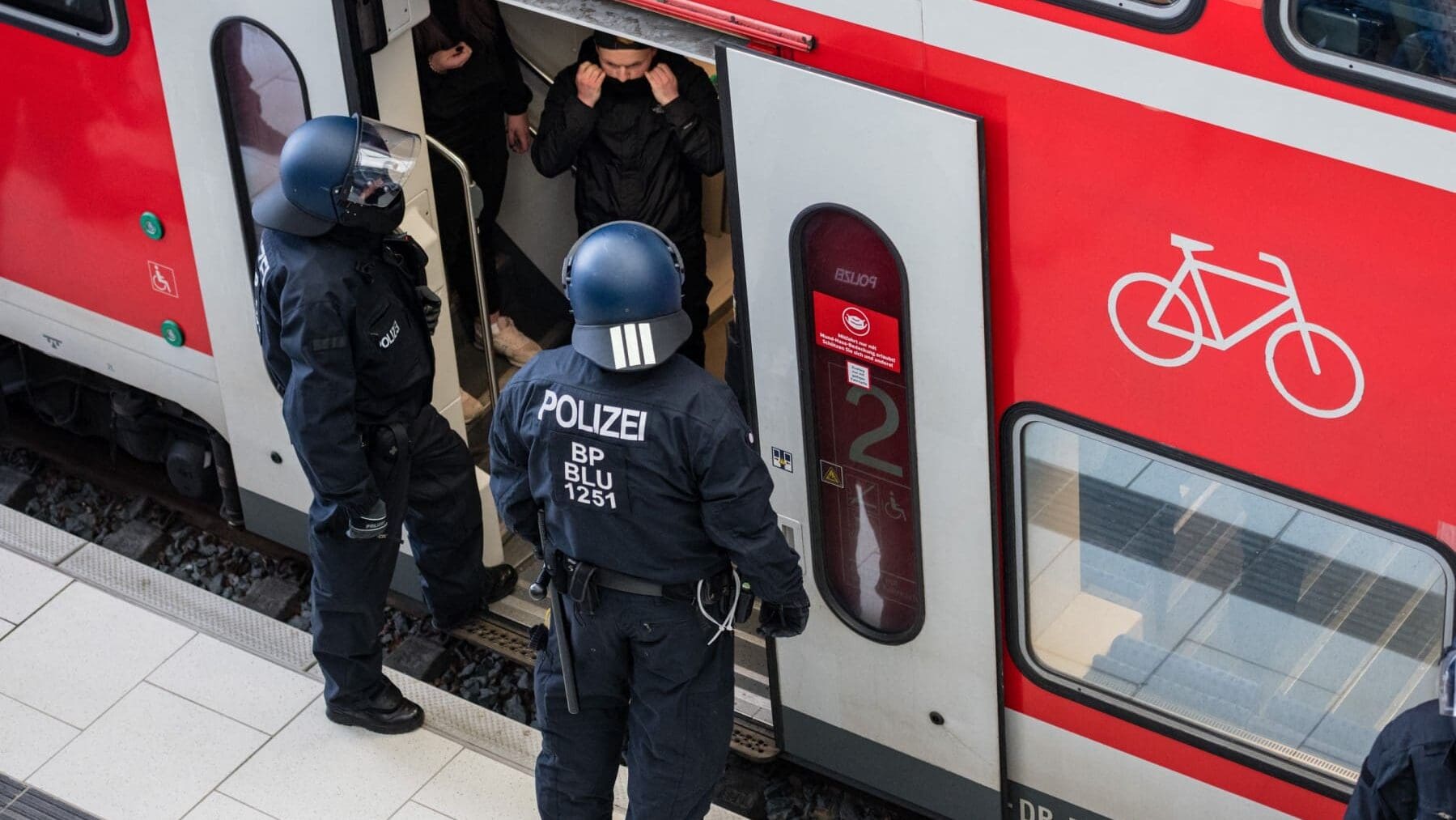
Photo: AFP / STRINGER
The number of crimes committed in Germany has risen to its highest rate since 2012, according to the federal police’s report on crime in 2023. According to the report, released on Monday, August 19th, the total number of crimes was 790,245 last year.
Announcing the report at a press conference on Monday, federal police chief Dieter Romann added a shocking number to the already distressing figures, saying that “in relation to the total population, non-Germans are statistically six times more likely to resort to knives in an attack than German citizens. And in sexual crimes, it is seven times more likely.”
As German daily Bild reports, this is 88,079 more crimes than in 2022—an increase of 12.5%—and an incredible 2,165 crimes per day on average. The federal police protect the borders, but also ensures security at train stations and airports. In 2023, it recorded more crimes than at any time since 2012.
A staggering 31,887 acts of violence were committed—a 10% increase compared to 2022. A total of 2,979 police officers were attacked in the line of duty, 792 of whom were injured.
Der Jahresbericht der Bundespolizei für #2023 ist online. 🔢 🎉
— Bundespolizei Berlin (@bpol_b) August 19, 2024
🚫790.245 Straftaten im Zuständigkeitsbereich
🛂 durchschnittlich 59,6 Haftbefehle pro Tag vollstreckt
⌛️4.076.645 geleistete Einsatzstunden der @bpol_bepo
🚔 101.920.587 gefahrene KM
🔗👉https://t.co/5PUKrJozRW pic.twitter.com/VXON1nX3xa
Violence is especially rife in train stations and on trains, with a whopping 25,640 cases recorded by the police last year—11% more than the previous year. Of these assaults, knives were used in 555 instances. The number of sexual assaults committed in stations and on trains is also staggeringly high: 1,898; a 12% increase over 2022.
Sexual violence in general rose by 15% to 2,498 cases, while the number of pickpocketing incidents increased by 16% to 27,849.
The announcement comes as a spate of knife crimes has been making headlines in Germany in recent months, most of the attacks being committed by Afghan and Syrian migrants.
Interior Minister Nancy Faeser recently proposed banning the carrying of knives longer than 6 centimetres in public (the current limit is 12 centimetres). Critics argue that an even stricter ban will not hinder perpetrators, mostly migrants, from committing heinous crimes, and that the state should instead focus its efforts on putting a stop to illegal immigration.
“Implementing knife bans at train stations is, in principle, a sensible measure. But legal changes would also have to be made so that the police can also monitor this. At the moment, random checks are not possible,” said Andreas Roßkopf, chair of the German police union (GdP).
According to police statistics, close to 13,844 knife-related attacks were committed last year, a significant increase compared to the 10,131 cases recorded a year earlier. Police have registered an increasing number of knife attacks in the vicinity of railway stations: last year they recorded a total of 777 knife attacks, while in the first six months of this year, the number has already reached 430. The majority of the perpetrators are “non-German.”
Monday’s report also corresponds with a new survey, published by Bild, according to which almost half of the people living in Germany feel less safe now than they did five years ago. 25% said they felt less safe, and 20% said they felt significantly less safe. 15% said they feel safer than five years ago.
Many respondents (41%) said they were frightened of robberies or being physically attacked on the street. Train stations stood out as being “particularly unsafe” areas for people, with 52% of those surveyed feeling uncomfortable there.
Social democrat Interior Minister Nancy Faeser, who has in recent years been more focused on attacking and trying to ban her political opponents than fighting crime, also attended the press conference on Monday but was seemingly unagitated by the horrific numbers presented in the report. She did, however, promise more money and an extra 1,000 staff members to the police force.
